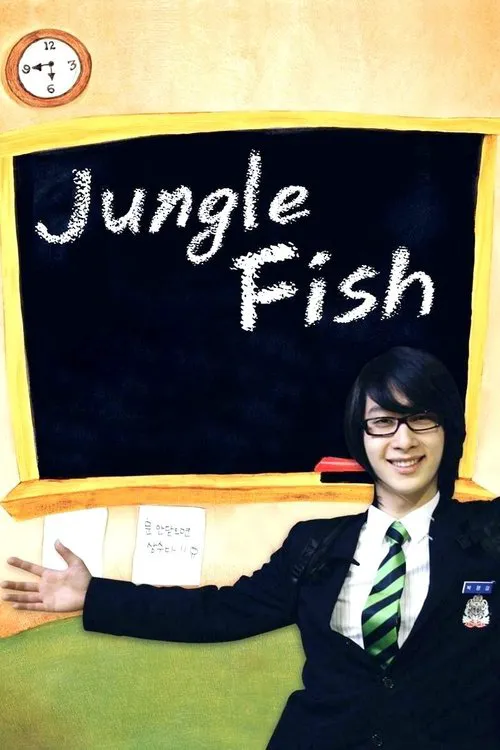Jungle Fish

Enredo
Set against the backdrop of a highly competitive Korean education system, Jungle Fish is a tense and thought-provoking drama based on a true story. The film delves into the high-pressure world of Korean high school students, specifically the cutthroat admissions process to prestigious colleges and universities. Kim Tae-oh, a talented and ambitious student, finds himself in a desperate struggle to secure a spot at a reputable university. To achieve this goal, he decides to join a private education center that focuses on providing students with a strategic advantage over their peers. The education center, known for its aggressive academic tactics and unorthodox strategies, promises students a guaranteed admission to their desired university. Tae-oh quickly becomes entangled in the center's system, where he is taught to sacrifice his well-being and personal freedoms in pursuit of academic excellence. Under the watchful eye of the center's director, Lee, who presents himself as a benevolent mentor, Tae-oh must navigate a grueling schedule of intense studying and testing, sacrificing even his relationships and hobbies. As Tae-oh becomes increasingly engulfed in the cutthroat world of Korean academia, the film highlights the psychological toll of this competitive environment on young minds. He begins to lose sight of his true desires and aspirations, replacing them with a singular focus on securing a spot at the prestigious university. His grades and test scores soar, but at the cost of his emotional and mental well-being. Meanwhile, the center's director, Lee, is depicted as a complex and multifaceted figure. On the surface, he presents himself as a guiding light, offering words of encouragement and support to his students. However, as the film progresses, it becomes clear that his motives are more sinister. He exploits the insecurities and fears of his students, using them to fuel his own power and influence in the academic world. As Tae-oh and his classmates struggle to cope with the pressures of the education system, the film takes a darker turn. Student after student falls victim to the center's ruthless tactics, succumbing to stress-induced health problems, anxiety, and even suicidal thoughts. The film paints a stark picture of the human cost of Korea's education system, which prioritizes academic achievement over mental health and well-being. As the exam results approach, tensions rise between the students and the center's director. Lee's true intentions are slowly revealed, and the students begin to realize that they have been manipulated and coerced into competing with one another. Tae-oh, who has become a symbol of the system's flaws, must confront the consequences of his own actions. Ultimately, the film culminates in a poignant and thought-provoking conclusion. As the results are announced, and students' futures are determined, the cast of characters is forced to confront the harsh realities of their choices. Tae-oh, having narrowly secured a spot at the prestigious university, is faced with a decision: continue down the path of academic achievement at any cost, or break free from the system's grasp and forge his own path. Jungle Fish raises vital questions about the value we place on education and the well-being of our children. The film serves as a commentary on the darker aspects of Korean culture, where educational success is seen as the primary measure of a child's worth. In its portrayal of a student's desperate struggle to succeed, the film serves as a stark reminder of the need to prioritize mental health, self-discovery, and happiness in the journey of educational achievement.
Resenhas
Recomendações




